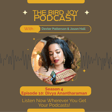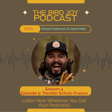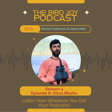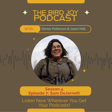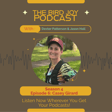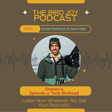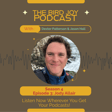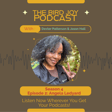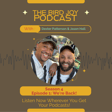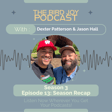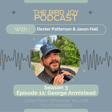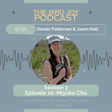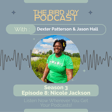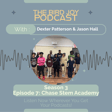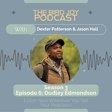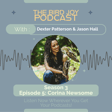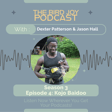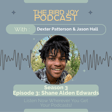
Color in the Outdoors: A Heartfelt Conversation with Christopher Kilgour
In this powerful season finale of Bird Joy, Dexter and Jason sit down with their brother and longtime collaborator, Christopher Kilgour, a transformative leader in the outdoor community. Chris is the founder of Color in the Outdoors, steward of Piece of Mind Acres, and co-founder of the Underground Hiking Collective.
From growing up near Tenney Park with ducks and his mom to becoming a fierce advocate for equity and healing in nature, Chris shares his journey with vulnerability, wisdom, and joy. He discusses building outdoor programs that welcome everyone, launching CITO, mentoring the next generation, and being featured in Dudley Edmondson's "People the Planet Needs Now."
This episode is full of heart, laughter, and hard-earned insights about what it truly means to belong in the Outdoors.
Connect with Chris Kilgour:
📸 Instagram: https://www.instagram.com/cjkilgour
Connect with Color in the Outdoors:
🌈 Website: Color in the Outdoors
📸 Instagram: @colorintheoutdoors
Subscribe & Follow Us:
📲 Apple | Spotify | Google | Stitcher – Bird Joy Podcast
Instagram: @thebirdjoypod
